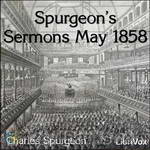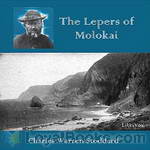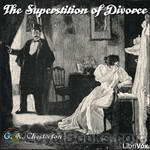|
Books Should Be Free Loyal Books Free Public Domain Audiobooks & eBook Downloads |
|
|
Books Should Be Free Loyal Books Free Public Domain Audiobooks & eBook Downloads |
|
Religion |
|---|
|
Book type:
Sort by:
View by:
|
By: Charles Simeon (1759-1836) | |
|---|---|
 Malachi, from Horae Homileticae
Malachi, from Horae Homileticae
Simeon's Works, as they were published 1832, fill twenty-one large octavo volumes, and the title-page reads, "Horae Homileticae or Discourses now first digested into one continued Series and forming a Commentary upon every book of the Old and New Testament ; to which is annexed an improved Edition of a Translation of Claude's Essay on the Composition of a Sermon". It was the literary achievement of his life, and no unworthy one. These volumes, now long out of print, contain many discourses fully... | |
By: Charles Spurgeon (1834-1892) | |
|---|---|
 Spurgeon's Sermons May 1858
Spurgeon's Sermons May 1858
Charles Spurgeon was a popular Baptist minister in London in mid-Victorian times; his ministry was highly influential and had a significant effect on many families in London and further afield. It was difficult to find a hall large enough to accommodate the crowd who wished to hear him. At times the Royal Surrey Gardens’ Music Hall was hired to accomodate the Sunday congregation; this could seat 10,000 but large numbers were unable to gain admittance. His world-wide heritage is very much with us today through the many chuches built, missionary work begun, children’s charity founded and theological colleges established as a result of his ministry... | |
 Morning and Evening: Daily Readings
Morning and Evening: Daily Readings
Organized by week, this devotional has a morning and evening meditation for every day of the year. Although these devotions are short in length, they are filled with spiritual goodness. In just a few sentences, Spurgeon is able to convey the wisdom of Scripture with eloquence and purpose. These daily messages provide Christians with the spiritual energy they need to begin and end each day. Spurgeon weaves a verse of Scripture into each devotion, helping readers draw deeper meaning out of the selected passages... | |
By: Charles W. Leadbeater (1854-1934) | |
|---|---|
 Vegetarianism and Occultism
Vegetarianism and Occultism
How does occultism regard vegetarianism? It regards it very favorably, and that for many reasons. These reasons may be divided into two classes: those which are ordinary and physical, and those which are occult or hidden. Let us see in detail why a vegetarian diet is emphatically the purest and the best. | |
By: Charles Warren Stoddard (1843-1909) | |
|---|---|
 The Wonder-Worker of Padua
The Wonder-Worker of Padua
This is the inspiring story of Saint Anthony of Padua (1195-1231). The son of a wealthy Portuguese family, he was initially ordained a priest of the Canons Regular of Saint Augustine. In 1221, he took up the habit of a poor Franciscan friar and devoted his life to fervently preaching the Word of God. His extensive knowledge of Sacred Scripture and keen insights into its profound spiritual meaning astonished his hearers. To confirm the efficacy of his words, God gave him the gifts of prophecy and of performing miracles, the most memorable of which he worked in Padua in northern Italy, where he resided for many years... | |
 The Lepers of Molokai
The Lepers of Molokai
This is the story of the lepers of Molokai and of the Roman Catholic missionary, Father Damien, who ministered to those who languished in that desolate place, waiting for death to release them from a most intense form of physical and mental suffering. Fr. Damien, born Jozef De Veuster, was a Roman Catholic priest from Belgium and member of the Congregation of the Sacred Hearts of Jesus and Mary, a missionary religious order. He won recognition for his ministry to people with leprosy (Hansen's disease), who had been placed under a government-sanctioned medical quarantine on the remote island of Molokai in the Kingdom of Hawaii... | |
By: Charlotte Maria Tucker (1821-1893) | |
|---|---|
 Spanish Cavalier
Spanish Cavalier
When his father dies, Lucius Lepine goes to Spain as a clerk. His fellow clerk, Don Aguilera, doesn't come to work one day. Lucius is worried, he has heard rumors of what has happened to Aguilera. What has happened? Can Lucius find out? | |
 Ned Franks, or The Christian's Panoply
Ned Franks, or The Christian's Panoply
Ned Franks, a one-armed Christian sailor, returns to his sister's home after several years away at sea. She and her son are not Christians, and are cold toward him, viewing him as a hindrance and expense. By his upright, kind behavior and willingness to work, he soon begins supporting himself and becomes well-liked in the community, especially by the children. Various other characters face and overcome challenges, including a servant girl who breaks a habit of dishonesty and a Jew who is faced with the reality that Jesus Christ is the Messiah... | |
 Giant-Killer - or the Battle Which All Must Fight
Giant-Killer - or the Battle Which All Must Fight
Ten year old twins. Constantine and Adolphus are chagrined to be shipped off to a private tutor in the country. Their lot appears worse when they meet their host and his family, consisting of a wife, son Aleck (who imagines himself the perfect student) and two little girls! On top of that, they are expected to study. Fun seems in short supply when they are not even allowed to pull the cow's tail, and there is no second dinner provided. This allegorical tale can be a simple, amusing story or a lesson to us all. | |
By: Charlotte Maria Tucker (A. L. O. E.) (1821-1893) | |
|---|---|
 Stories of the Wars of the Jews
Stories of the Wars of the Jews
Stories of the Wars of the Jews from the Babylonish captivity, to the destruction of Jerusalem by Titus is a historical narrative spanning Jewish history from 586 B.C.E to 70 A.D. There is no history more fraught with interest, or conveying more important lessons than that of God’s chosen nation. There are no annals which display instances of more heroic courage, faith, and self-devotion and of darker apostasy and crime,—than those of the descendants of Abraham. | |
 Precepts in Practice; or, Stories Illustrating the Proverbs
Precepts in Practice; or, Stories Illustrating the Proverbs
Fifteen short stories that are full of morals and wisdom, warmth and comfort, charm and wit—all inspired by the book of Proverbs. Each of the stories are recapped with perceptive poems. This special collection of tales are sure to influence listeners of all ages with godly lessons to heed and help draw nearer to His Word. | |
 Children's Tabernacle; Or, Hand Work and Heart Work
Children's Tabernacle; Or, Hand Work and Heart Work
Bored with whittling, embroidery and other amusements, five children and their mother set out to build a model of the tabernacle. As the pillars are fashioned and the curtains sewn, the children learn the importance of types in the Old Testament. The showbread on the table in the Holy Place is a type of Christ being the bread of life; the offerings for leprosy were a type of cleansing from sin; the Holy of Holies was a type of God's presence, etc. One day, though, twelve-year-old Dora finds herself in trouble. Will the way be opened for her--from a mere tabernacle model to a new knowledge of forgiveness? - Summary by Bethesda Lily | |
By: Charlotte Mary Yonge (1823-1901) | |
|---|---|
 Captivating Bible Stories for Young People
Captivating Bible Stories for Young People
Noted author and historian, Charlotte Mary Yonge, presents Bible stories written for children in simple language. There are thee 52 stories for the year starting at the beginning of the Bible through the end, with three readings for each chapter. - Summary by Larry Wilson | |
By: Chesterton, G. K. | |
|---|---|
 The Superstition of Divorce
The Superstition of Divorce
This short book was written in 1920, and in it Chesterton, with his usual wit and incisive logic, presents a series of articles defending marriage and indicating the weaknesses in divorce. He did this 16 year before the first Christian denomination in the world allowed it’s members to divorce. Till then Christendom was unanimous in standing against it. Chesterton saw clearly the trends of this time, and delivered this defense. | |
By: Christina Rossetti (1830-1894) | |
|---|---|
 Maude
Maude
Maude is a novella by Christina Rossetti, written in 1850 but published posthumously in 1897. Considered by scholars to be semi-autobiographical, the protagonist is 15-year-old Maude Foster, a quiet and serious girl who writes poetry that explores the tensions between religious devotion and worldly desires. The text includes several of Rossetti's early verses, which were later published as part of her collections of poetry. | |
By: Christoph von Schmid (1768-1854) | |
|---|---|
 Basket of Flowers, The
Basket of Flowers, The
James is the king's gardener and he deeply enjoys caring for and cultivating flowers. He teaches his daughter Mary many principles of godliness through the flowers. One day Mary is falsely accused of stealing, and the penalty is death. Through many trials and hardships, Mary learns of the goodness of God, the blessing of praying for her enemies, how to consider her trials as a joy, and true forgiveness. | |
By: Christopher Marlowe (1564-1593) | |
|---|---|
 The Jew of Malta
The Jew of Malta
Christopher “Kit” Marlowe (baptised 26 February 1564 – 30 May 1593) was an English dramatist, poet, and translator of the Elizabethan era. The foremost Elizabethan tragedian before William Shakespeare, he is known for his magnificent blank verse, his overreaching protagonists, and his own untimely death. The Jew of Malta (1589) is an original story of religious conflict, intrigue, and revenge, set against a backdrop of the struggle for supremacy between Spain and the Ottoman Empire in the Mediterranean... | |
By: Cornelius à Lapide (1567-1637) | |
|---|---|
 Great Commentary of Cornelius à Lapide (St. Matthew's Gospel Chaps I - IV)
Great Commentary of Cornelius à Lapide (St. Matthew's Gospel Chaps I - IV)
Cornelius Cornelii a Lapide was born in Belgium. He became a priest in 1595 and taught philosophy, and Hebrew, while also preaching and administering the Sacraments. In 1616 he was moved to Rome in the same capacity. Towards the end of his life, he devoted himself exclusively to completing and correcting his commentaries, which covered almost every part of the Bible. The commentaries show a mastery of Hebrew, Greek, Latin, Syriac and Arabic, in addition to a familiarity with the church fathers. His Latin commentaries stretched over 30 volumes and were the standard Catholic texts for understanding any part of scripture, until more modern times. - Summary by ancientchristian | |
By: Coulson Kernahan (1858-1943) | |
|---|---|
 Visions
Visions
Deeper questions of life and death, and of God’s relationship to man, are explored in this collection of “dreams” by a noted English novelist and literary critic. A man takes an uncertain step into the next world as his life ends – Defendants at the Last Judgment hurl their own accusations at the Judge – An angel arrives on Christmas Eve to guide one soul through a night of despair and doubt – Flowers in a garden contemplate their own mortality – What would it mean if the world renounced Christ, or God took Christ away from the world? – And in a world of the future, pleasure and luxury are pursued … and children are nowhere to be found. (Introduction by D. Leeson) | |
By: Cyril of Alexandria (376-444) | |
|---|---|
 That Christ Is One
That Christ Is One
Cyril of Alexandria was the leading voice of Nicene orthodoxy in the Christological controversies between Constantinople (381) and Chalcedon (451). Assuming the mantle of the Cappadotian fathers, he answered the auguments of Nestorius who had changed the liturgy of Constantinople by altering the prayer which referred to Mary as the Mother of God. Although he died seven years before the Council of Chalcedon, his writings and formulations heavily influenced not only Chalcedon, but the entire trajectory of orthodox christological thought. | |
 Commentary on the Gospel of Luke, Sermons 27-38
Commentary on the Gospel of Luke, Sermons 27-38
Sermons 27 through 38 cover the Gospel of St Luke 6:20 - 7:28. - Summary by the Reader | |
 Commentary on the Gospel of John, Book 1
Commentary on the Gospel of John, Book 1
Cyril was a scholarly archbishop and a prolific writer. In the early years of his active life in the Church he wrote several exegetical documents. Among these were: Commentaries on the Old Testament, Thesaurus, Discourse Against Arians, Commentary on St. John's Gospel, and Dialogues on the Trinity. In 429 as the Christological controversies increased, the output of his writings was so extensive that his opponents could not match it. His writings and his theology have remained central to the tradition of the Fathers and to all Orthodox to this day. Book I of Commentary on St John's Gospel covers John 1:1-28. | |
 Commentary on the Gospel of John, Book 2
Commentary on the Gospel of John, Book 2
Book 2 of Commentary on St John's Gospel covers John 1:29 - 5:34. | |
 Commentary on the Gospel of John, Book 3
Commentary on the Gospel of John, Book 3
Book 3 of Commentary on St John's Gospel covers John 5:35- 6:37, as well as a look at the prophecy contained in Deut. 18:15-19. | |
 Commentary on the Gospel of John, Book 4
Commentary on the Gospel of John, Book 4
Book 4 of Commentary on St John's Gospel covers John 6:38 - 7:24. | |
 Commentary on the Gospel of Luke, Sermons 96-110
Commentary on the Gospel of Luke, Sermons 96-110
Sermons 96 through 110 cover the Gospel According to Luke 13:6 through 16:17. The conclusion of Sermon 96, the whole of 97, and the beginning of 98 have perished. Therefore, they have been replaced with text from Mai’s Nov. Bib. Pat. Vol. ii. pp. 315-321; and Cramer, ii. 107, where some of the following extract is given anonymously; and from the Aurea Catena, p. 201. ed. Venet. 1775. | |
 Commentary on the Gospel of Luke, Sermons 81-95
Commentary on the Gospel of Luke, Sermons 81-95
Sermons 81 through 95 cover the Gospel According to Luke 11:19 to 12:59. | |
 Scholia on the Incarnation of the Only-Begotten
Scholia on the Incarnation of the Only-Begotten
Thirty-seven short articles discussing "What is Christ?" | |
 Commentary on the Gospel of John, Book 5
Commentary on the Gospel of John, Book 5
Book 5 of Commentary on St John's Gospel covers John 7:25 - 8:43. However, St Cyril was working with a New Testament manuscript which did not include what we now refer to as John 7:53 - 8:11. | |
 Commentary on the Gospel of John, Book 6
Commentary on the Gospel of John, Book 6
Book 6 of Commentary on St John's Gospel covers John 8:44 - 10:17. | |
 Commentary on the Gospel of Luke, Sermons 39-46
Commentary on the Gospel of Luke, Sermons 39-46
Sermons 39 - 46 cover the Gospel According to Saint Luke 7:31 - 8:56. - Summary by the Reader | |
 Commentary on the Gospel of John, Book 11
Commentary on the Gospel of John, Book 11
Book 11 of Commentary on St John's Gospel covers John 16:14 - 18:23. - Summary by the Reader | |